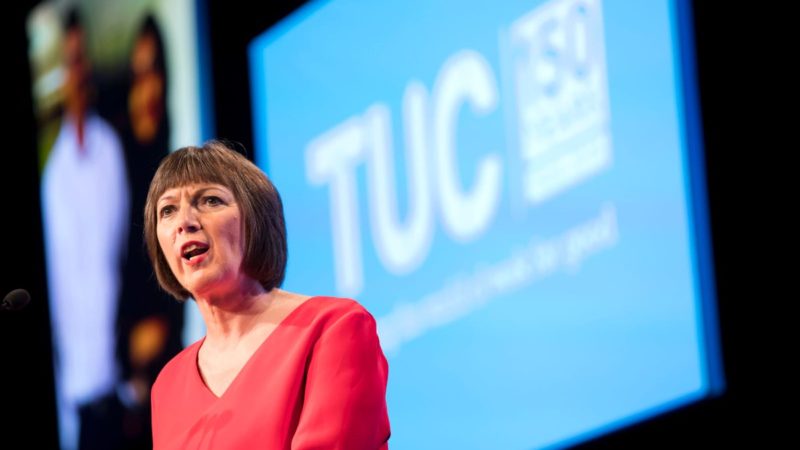
The TUC has warned that the government must increase sick pay rates – or risk worsening the spread of coronavirus after data revealed that 43% of workers cannot afford to self-isolate.
A survey commissioned by the body found that over two-fifths of workers would be unable survive for two weeks on the current weekly sick pay allowance. For low-income workers earning less than £15,000 a year, the figure rises to 50%.
Responding to the findings of the online poll carried out between July 31st and August 5th, the TUC has called on the government to raise the rate of sick pay to the real living wage of £320 per week, and to extend the benefit to cover all workers.
Commenting today, TUC general secretary Frances O’Grady said: “The lack of decent sick pay puts everything at risk. Asking workers to self-isolate on £96 a week is not viable – especially when many don’t have savings to fall back on.
“We can’t have a situation where people are forced to choose between their health and paying their bills. The government must ensure that everyone has access to sick pay and raise the basic rate to at least the real living wage of £320 a week.”
The research, which polled over 2,000 workers, also found that many people had been struggling financially as a result of the pandemic, with 33% being forced to cut back spending and 22% being plunged into debt in the last three months.
Alongside improving sick pay, the TUC has demanded that the government overhaul Universal Credit, increase local authority hardship funds, and provide monetary support for those struggling to pay council tax or rent.
O’Grady added: “Employers must do their civic duty and make sure workers can self-isolate on full pay. But where bosses can’t or won’t the government must step in.
“Unless ministers fix this gaping hole in our safety net, Britain will be ill-prepared for a second wave of infections or further local lockdowns.”
The UK currently has one of the lowest sick pay rates in Europe, with workers only receiving £95.85 a week. Nearly two million people also miss out on sick pay support because they earn less than the ‘lower earnings limit’ of £120 a week.
Labour warned earlier in the year that leaving so many workers in the country ineligible for statutory sick pay would undermine the UK government’s test and trace programme and the efforts to prevent a second wave of the virus.
Head of the government’s test and trace system Dido Harding also raised concerns earlier in the year regarding the absence of support for people facing the need to take time off work but unable to claim.
She told a press briefing in July: “It’s particularly challenging for that workforce… I continue to make the case that we need to think about how we support people in those lowest paid roles and the self employed.”
The government announced in August that those who contract the virus and need to self-isolate would receive £132 for a 10-day self-isolation period, while others who have come into contact with them will receive £182 for 14 days of isolation.
The benefit is only payable to those already on Universal Credit or in receipt of working tax credits. Critics have pointed out that there are lots of low earners in low-income households not on UC – large numbers of young, single people for example.
O’Grady slammed the new benefit as “paltry”, declaring that it would not make the difference needed. She added: “The sooner government gets on with delivering fair sick pay for everyone, the quicker we will beat this pandemic.”
The payment is lower than the level of statutory sick pay, which is an income that the Health Secretary Matt Hancock himself admitted in March that he could not live on.




More from LabourList
Government abandons plans to delay 30 local elections in England
‘The cost of living crisis is still Britain’s defining political challenge’
‘Nurses are finally getting the recognition they deserve’